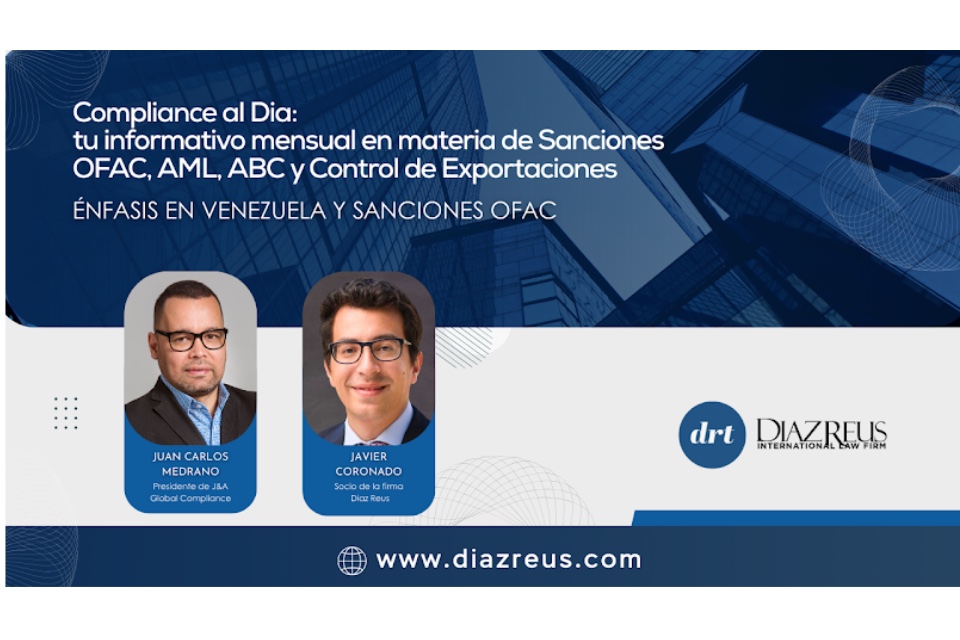Corporations are increasingly resorting to arbitrations in commercial disputes in Colombia. Arbitration is often preferred to court litigation, particularly when the parties require a relatively fast resolution. It goes without saying that in order to reduce the risk of getting into disputes, companies should seek expert legal advice from the outset of contractual negotiations with Colombian parties.
This article provides an overview of the key practical issues including types of disputes that can be settled by arbitration and any mandatory legislative provisions applicable under Colombian law. It also sheds light on the ongoing debate regarding the possibility of resolving an international arbitration dispute under foreign law when the underlying commercial agency contract is performed in Colombia.
Arbitration is an agreement between two or more parties to resolve a dispute outside of the court system. The parties agree upon a third party as an arbitrator who will essentially act as a judge. Arbitration can be quick and easy, whereas a lawsuit commenced in the courts can drag on for many years. This is especially true in Colombia, where litigating a dispute from start to finish in the courts takes a substantial amount of time and expense.
In Colombia, arbitration is voluntary. The decision of the arbitrator will be binding on the parties involved. In Colombia, arbitration is customarily used to resolve commercial disputes, particularly those related to international business transactions.
Arbitration in Colombia is based on Article 116 of the Constitution. Specifically, Law 315/96 governs international arbitration. Under Colombian law, international arbitration applies if: (i) the parties have their domicile in different states at the time of agreeing to the arbitration clause; (ii) the place of performance of the substantial part of the obligations relating directly to the subject matter of the litigation is outside the state or states where the parties are domiciled; (iii) the place of arbitration is outside the state in which the parties are domiciled, provided this is agreed to in the arbitration agreement; (iv) the subject matter of the arbitration clearly involves the interests of more than one state; and (v) the dispute referred to arbitration directly and unequivocally affects the interests of international commerce.
Colombian law does not permit an arbitral tribunal to assume jurisdiction over disputes unless all parties are signatories to a written agreement. The arbitration agreement may be incorporated in a contract governing the parties’ relationship or it may come in the form of a separate agreement used to settle a specific dispute.
Only disputes that may be directly settled by the parties can be submitted to arbitration in Colombia. Claims related to family civil status and criminal matters are not subject to arbitration. Generally, a settlement is permitted for economic damages. Additionally, arbitration is not permitted for: (i) obligations arising from provisions involving public policy and good usages; (ii) rights of incapable persons; (iii) the rights that cannot be freely disposed of by law; (iv) workers’ minimum rights; (v) matters involving public policy, sovereignty, and the constitutional system; and (vi) contracts for the exploration and exploitation of hydrocarbons entered into with the Colombian Hydrocarbons Agency.
Moreover, Colombian law does not permit arbitration to determine the legality of administrative acts or the application of “exceptional powers” of the government (i.e., unilateral interpretation, unilateral modification).
One controversial issue in Colombian arbitration revolves around the possibility of resolving an international arbitration dispute under foreign law, when the underlying transaction deals with a commercial agency in Colombia. On one hand, Colombian law states that all agency contracts performed within the country are subject to the laws of Colombia. On the other hand, international arbitration allows the parties to apply foreign law to their respective contract. Questions still linger as to whether the Supreme Court will uphold an international arbitration award in this type of case.
If an international conflict arises, companies should hire an experienced law firm with a proven ability to meet the legal, linguistic, and logistical demands of resolving international disputes. Additionally, companies should seek expert legal advice at the outset of the contractual negotiations.
Diaz, Reus & Targ, LLP’s international dispute resolution team resolves complex transnational business, contractual and commercial disputes throughout Latin America, Asia, the Middle East, Europe and the United States. Our team has successfully handled complex, multi-jurisdictional cases and parallel proceedings for noted multinational corporations, including Tyco International and Canon Latin America, as well as governments such as China, Brazil, Venezuela, and Honduras.













